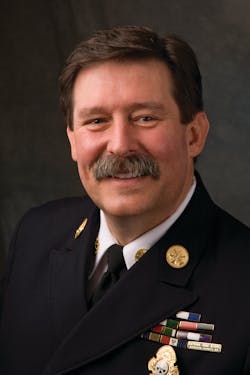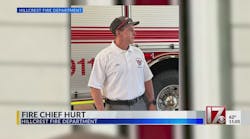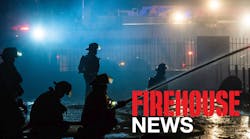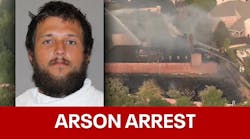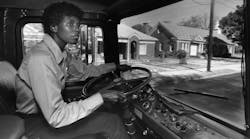With 2012 upon us, it is time to look back at the most important, interesting and bizarre fire service legal stories of 2011. The important cases are those that set or affirm important precedents that impact hundreds if not thousands of firefighters. The interesting cases are those that capture our attention while the bizarre cases are, well, bizarre.
This month, let’s start with the three most important cases of 2011.
First is the case I consider to be the most important of 2011: Westmoreland v. Sutherland, a First Amendment case handed down by the U.S. 3rd Circuit Court of Appeals. Ron Westmoreland is a Bay Village, OH, firefighter and member of the fire department’s dive team. In 2008, the city decided to eliminate the dive team to save money. Shortly thereafter, there were two drowning deaths in the community.
Westmoreland attended a city council meeting to voice his concern over the elimination of the dive team and lambasted city officials. The court quoted him as follows: “You keep rolling the dice, hoping everything will be alright. You cut our manning, you cut our training and you cut money in various places, which is not my responsibility. But my responsibility lies with the citizens of Bay Village…They pay the taxes that pay all of our salaries. Now a 7-year-old kid is dead, that last year would have been found in about 20 minutes by the Bay Village dive team.” Westmoreland was cited for “insubordination, malfeasance, misfeasance, dishonesty, failure of good behavior and conduct unbecoming of an officer” and suspended for three 24-hour shifts. He filed suit, claiming the discipline violated his First Amendment rights.
The 3rd Circuit agreed with Westmoreland and restated the key considerations for determining whether a firefighter’s speech is protected: the firefighter must be speaking as a private citizen (off duty and not as a spokesperson for the department) and on a matter of public concern. The court recognized that the way Westmoreland voiced his concerns (at an open forum for public comment before the city council) was highly appropriate under the circumstances.
The court also dismissed the city’s argument that Westmoreland’s comments were somehow private in nature because he may receive additional overtime compensation or income from a private dive business if the dive team was reinstated. The fact that an employee may receive a personal benefit does not change the public nature of the concerns raised.
Lastly, the court said that when a firefighter speaks as a private citizen about a matter of public concern, a fire department may discipline the firefighter for making false statements only if it can prove the statements were false and the employee knew they were false when he made them (or at least was reckless with regard to the truth).
The second case was Marcelin v. City of West Palm Beach, decided by the U.S. 11th Circuit Court of Appeals. It was the latest effort to clarify a firefighter’s right to remain silent during an administrative investigation. Marcelin held that a firefighter who is ordered to answer employment-related questions as part of an administrative investigation must answer them even if the answers would tend to incriminate him or her in an active criminal case. The protection afforded by the Fifth Amendment’s privilege against self-incrimination is satisfied because the statements made cannot be used by law enforcement in any way. However, work-related questions posed by an employer must be answered.
The third case was NAACP v. North Hudson Regional Fire & Rescue, a U.S. 3rd Circuit Court of Appeals decision. North Hudson Regional Fire & Rescue in New Jersey had a residency requirement that limited applicants to residents of one of the five communities making up the district. The district was 69.6% Hispanic, 22.9% white and 3.4% African American. The department was 79.5% white, 19.2% Hispanic and 0.6% African American. The NAACP sued on behalf of African American applicants, claiming the residency requirement created a disparate impact. The department’s defense was that opening the process to non-residents would disadvantage Hispanics and other minorities by allowing more white applicants from other towns to apply.
The court acknowledged that some New Jersey fire departments use residency requirements to enhance minority employment opportunities. The court even referenced a 1977 race-discrimination suit brought by the federal government against 12 New Jersey municipalities, where the jurisdictions entered into consent decrees that mandated the use of residency requirements to enhance minority recruitment. Those decrees remain in effect today to help minority recruitment. But the 3rd Circuit rejected the use of the residency requirement by North Hudson Regional Fire & Rescue in this case, finding that it served to limit the number of African Americans applying to the department and thereby caused the disparate impact. The court further concluded that the use of the residency requirement could not be justified as a business necessity.
Next: The most interesting and most bizarre cases of 2011
